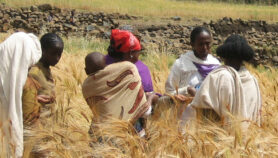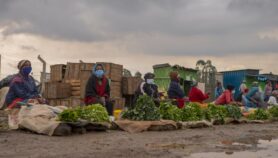Send to a friend
The details you provide on this page will not be used to send unsolicited email, and will not be sold to a 3rd party. See privacy policy.
Africa’s traditional fruits could boost nutrition, environmental stability and economic development if given the right scientific and agricultural support, says a report.
The report, by the National Research Council of America, was released last week (30 January) and is the third in a series by the council called ‘Lost Crops of Africa’.
A panel of experts from various African countries, with input from ordinary workers, looked at the sustainability of growing a range of indigenous African fruits and the effect it could have on combating malnutrition and poverty in the continent.
Twenty-four fruits were chosen for their potential to contribute to nutrition — particularly for children — and economic development. Among these are aizen, balanites, baobab, butterfruit, ebony, marula and tamarind.
Traditionally, according to the report, indigenous fruit grew wild and was not domesticated. With the advent of colonialism, fruits from Asia and America were introduced, and Africa’s fruits faded into the savannahs and jungles.
Mark Dafforn, who directed the study, believes farming these fruits will be extremely sustainable. "Their success will draw on local resources and local knowledge, and these are an ancestral heritage in which people can take justifiable pride."
"[The fruits] have the added advantage of having survived conditions like drought and floods for millennia," he told SciDev.Net, making them better suited than imported varieties.
The report advocates not only large-scale farming, but encourages individuals to select their best crops and share them with others for propagation, saying collaboration between amateurs and professional horticulturalist and scientists will be key to success.
"Even if just for home use rather than markets, they could lead to better nourishment in the general rural population, an essential foundation for any economic improvement in Africa," adds Dafforn.
Jane Guyer, professor of anthropology at the US-based Johns Hopkins University and a member of the panel for the report, points out that these crops are already valued and used in many parts of Africa.
"These crops were never lost to the people; they have just been lost to the kind of agricultural science that focused mainly on internationally commercialised crops."













